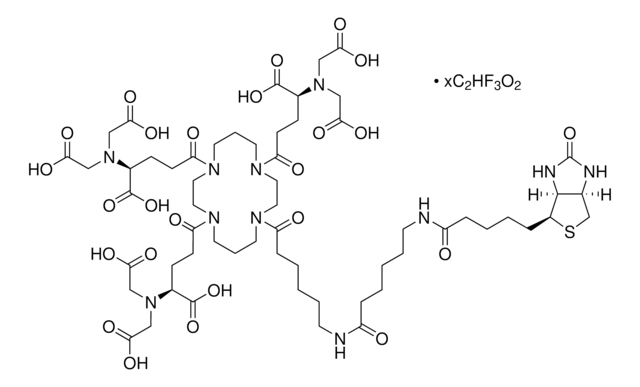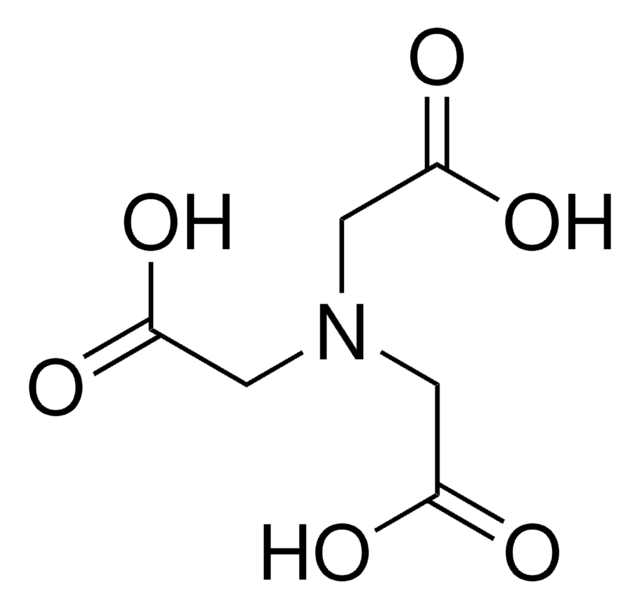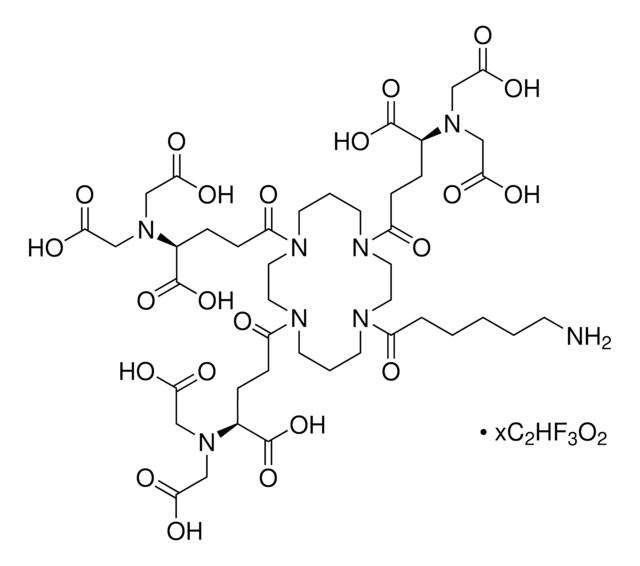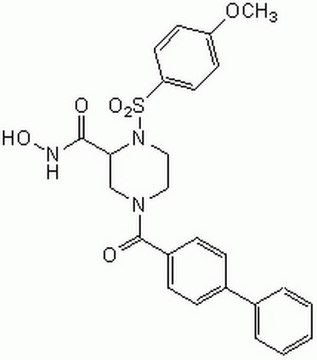51410
Nε-(N-(+)-Biotinyl-6-aminohexanoyl)-Nα,Nα-bis(carboxymethyl)-L-lysine tripotassium salt
≥98.0% (TLC)
Synonym(s):
Biotin-X-NTA
About This Item
Recommended Products
Quality Level
assay
≥98.0% (TLC)
form
solid
SMILES string
[K+].[K+].[K+].[O-]C(=O)CN(CC([O-])=O)[C@H](CCCCNC(=O)CCCCCNC(=O)CCCC[C@@H]1SC[C@@H]2NC(=O)N[C@H]12)C([O-])=O
InChI
1S/C26H43N5O9S.3K/c32-20(28-13-7-5-8-18(25(38)39)31(14-22(34)35)15-23(36)37)10-2-1-6-12-27-21(33)11-4-3-9-19-24-17(16-41-19)29-26(40)30-24;;;/h17-19,24H,1-16H2,(H,27,33)(H,28,32)(H,34,35)(H,36,37)(H,38,39)(H2,29,30,40);;;/q;3*+1/p-3/t17-,18+,19-,24-;;;/m0
InChI key
MKLSOXPHWHEJPK-NERIWEOLSA-K
1 of 4
This Item | 444252 | 444288 | 444249 |
|---|---|---|---|
| assay ≥95% (HPLC) | assay ≥95% (HPLC) | assay ≥95% (HPLC) | assay ≥95% (HPLC) |
| form solid | form solid | form solid | form solid |
| manufacturer/tradename Calbiochem® | manufacturer/tradename Calbiochem® | manufacturer/tradename Calbiochem® | manufacturer/tradename Calbiochem® |
| Quality Level 100 | Quality Level 100 | Quality Level 100 | Quality Level 100 |
| storage temp. −20°C | storage temp. −20°C | storage temp. 2-8°C | storage temp. −20°C |
| solubility DMSO: 100 mg/mL | solubility methanol: 1 mg/mL, DMSO: 100 mg/mL | solubility methanol: 100 mg/mL, DMSO: 200 mg/mL | solubility DMSO: 100 mg/mL, methanol: 25 mg/mL |
Application
Packaging
Storage Class
11 - Combustible Solids
wgk_germany
WGK 3
flash_point_f
Not applicable
flash_point_c
Not applicable
ppe
Eyeshields, Gloves, type N95 (US)
Choose from one of the most recent versions:
Already Own This Product?
Find documentation for the products that you have recently purchased in the Document Library.
Articles
Phospholipase A2 (PLA2) designates a class of enzymes that hydrolyze the sn-2 ester of glycerophospholipids to produce a fatty acid and a lysophospholipid. It has become clear that some of these enzymes liberate arachidonic acid in mammalian cells for the biosynthesis of eicosanoids, and thus there has been considerable interest in developing PLA2 inhibitors. Based on amino acid sequences, there are now more than 12 distinct groups of mammalian PLA2s, as well as many non-mammalian forms, all of which have been classified into 14 distinct groups with many subgroups.
Our team of scientists has experience in all areas of research including Life Science, Material Science, Chemical Synthesis, Chromatography, Analytical and many others.
Contact Technical Service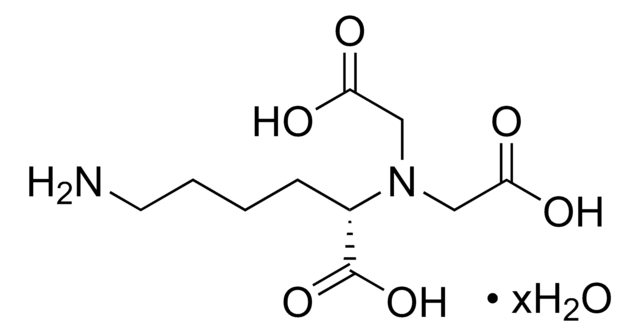
![N-[Nα,Nα-Bis(carboxymethyl)-L-lysine]-12-mercaptododecanamide ≥90.0% (TLC)](/deepweb/assets/sigmaaldrich/product/structures/421/384/d2cb2cfc-59fa-44f9-832b-65e9af62ebaf/640/d2cb2cfc-59fa-44f9-832b-65e9af62ebaf.png)
